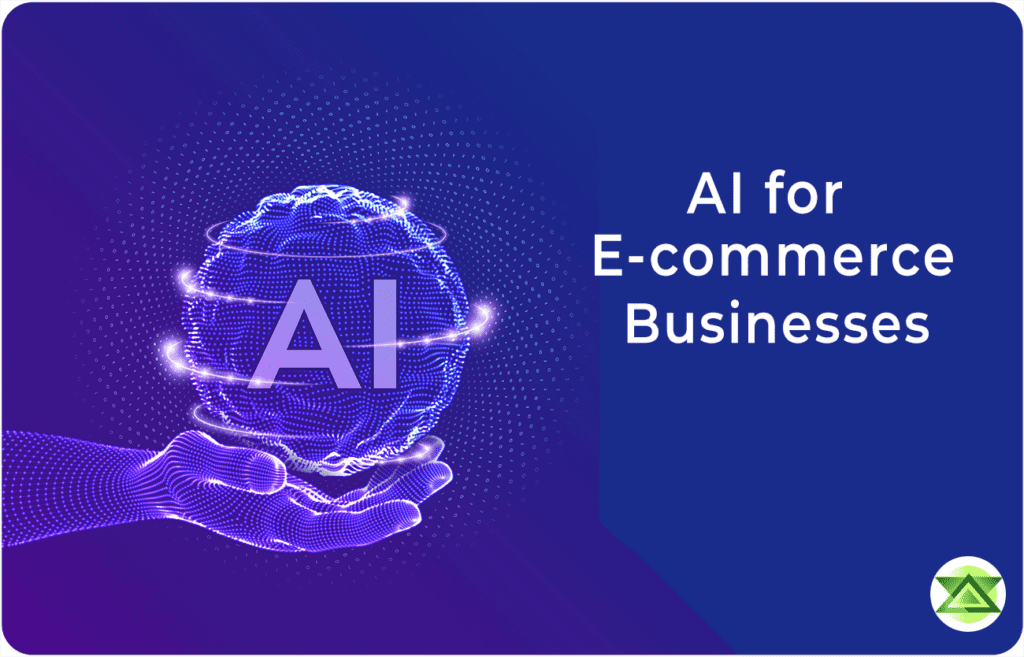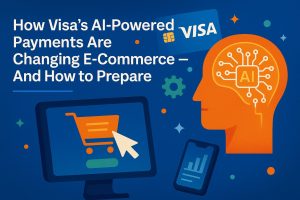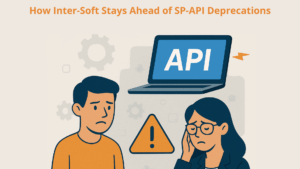How can AI improve my e-commerce business?
Introduction:
AI (Artificial Intelligence) has the potential to revolutionize e-commerce businesses by introducing a wide range of transformative capabilities. From personalized customer experiences to efficient inventory management, AI can drive significant improvements across various aspects of an e-commerce operation. Let’s explore how AI can change your e-commerce business.
What exactly is AI and how does it work?
AI, or Artificial Intelligence, is a branch of computer science that focuses on developing computer systems that can perform tasks that typically require human intelligence. These tasks can include speech recognition, problem-solving, learning, decision-making, and visual perception. AI uses algorithms and techniques such as machine learning, natural language processing, and deep learning to enable computers to analyze data, make predictions, and adapt to new information without being explicitly programmed.

What are some benefits of using AI for your e-commerce business?
- Automation and Efficiency: AI can automate repetitive and mundane tasks, improving efficiency and productivity. It can perform tasks like data entry, data analysis, and document processing, freeing up human resources for more strategic and value-added activities.
- Personalization and Customer Experience: AI enables businesses to provide personalized experiences to their customers. By analyzing customer data and behavior, AI algorithms can recommend products, tailor marketing campaigns, and provide customer support. One of the key areas where AI can make a substantial impact is in customer experience. By leveraging AI algorithms, you can analyze customer data, including browsing behavior, purchase history, and preferences, to offer highly personalized product recommendations. AI-powered recommendation systems can enhance cross-selling and upselling opportunities, leading to increased customer satisfaction and higher conversion rates.
- Decision Making and Analytics: AI algorithms can analyze large volumes of data and identify patterns, trends, and insights that may not be apparent to humans. This helps businesses make more informed and data-driven decisions. AI can also transform the way you manage inventory and supply chain operations. By analyzing historical sales data, AI algorithms can forecast demand patterns and optimize inventory levels, minimizing the risk of stockouts or overstocking. This helps to improve operational efficiency, reduce costs, and streamline inventory management processes.
- Improve Marketing: In the realm of marketing and advertising, AI can significantly improve targeting and campaign optimization. With AI-powered analytics, you can gain valuable insights into customer behavior, preferences, and purchasing patterns. This data can be used to create highly targeted marketing campaigns, personalized promotions, and dynamic pricing strategies. AI can also optimize advertising spending by analyzing campaign performance and automatically adjusting bids and targeting parameters to maximize ROI.
- Risk Management and Fraud Detection: AI algorithms can analyze data to detect anomalies and patterns that may indicate fraudulent activities, improving risk management and security measures. Additionally, AI can enhance fraud detection and security measures in e-commerce businesses. AI algorithms can analyze vast amounts of data, including transaction records, user behavior, and external factors, to identify patterns indicative of fraudulent activities. This enables early detection and prevention of fraudulent transactions, protecting both the business and its customers.
- Virtual Assistants and Chatbots: AI-powered virtual assistants and chatbots can handle customer queries, provide information, and offer personalized recommendations or assistance 24/7. Moreover, AI chatbots and virtual assistants can provide real-time customer support, answering queries, assisting in the purchasing process, and resolving issues. These virtual assistants can be available 24/7, ensuring customer inquiries are addressed promptly and enhancing overall customer service.
AI platforms to be aware of:
- Solidgrids—product images. Solidgrids removes the headache of image post-production, by using AI-powered automation to isolate the product in the photo and then removing the background. Flooring, walls, boxes, even shadows from the product itself, all are removed. This leaves you with a perfect image for product listings: the item as you photographed it, on a plain, white background.
- Maverick—personalized videos. If you’ve ever wished you had the time to send all of your customers a video to welcome them or say thanks for buying from you, Maverick is for you. You record a single video with the message you’d like to send, and Maverick then personalizes it for every recipient. You can also record multiple videos, to be used at different stages of the customer journey—like recovering abandoned carts.
- Kili—AI support team. If you imagine a tool like ChatGPT but only for your business, you’ve just thought of Kili. Feed the tool your company’s documentation and it can respond to queries from your site visitors and customers. Simply import a CSV, text files, or even a folder, and Kili becomes a member of your support team. You can use it as a personal shopper for visitors, deliver customer support, answer technical questions, or even help internal teams find the answers they need.
- Copysmith—product descriptions. Copysmith promises to create product descriptions on your behalf. The descriptions are SEO-focused, to help your ranking in the search results, and Copysmith can even write to the requirements of platforms like Amazon and Etsy. And it’s not just product descriptions that Copysmith writes, but also meta tags, email subject lines, ad copy, and captions for social media. It can even rewrite your existing content and create blog templates.
- Adcreative—ad creatives. AdCreative takes the hassle out of making ad creatives. Many experienced marketers know that to get the most out of PPC, it’s important to run a lot of different versions to find the one that best resonates with the audience. AdCreative makes this possible instantly. It can generate creatives, headlines, text, and social posts, allowing you to A/B test at higher volume.
- Patterned—unique product patterns. Struggling to find the perfect pattern for your product? Enter Patterned: with its AI pattern maker, you’re able to generate an unlimited amount of designs, completely unique and customized to your product. Each one is royalty-free, too. The process is simple: input some keywords and the AI pattern generator gets to work. You can tell the tool specific themes—like “flower” or “leaves”—and a style, such as “abstract”.
- CopyMonkey—Amazon listings. Copymonkey specializes in Amazon listings, generating optimized copy to help you rank highly. In addition to the text creation, it’s able to analyze what’s working for your competitors and monitor the best keywords so you can be confident that the output is always relevant and impactful. Copymonkey also generates product descriptions for ecommerce—simply tell it some of the features of your products and it writes a description in seconds.
- Shulex Voc—market research. As an ecommerce brand, knowing what people want is crucial. The problem is, it takes a lot of time to perform sentiment analysis, analyze your competitors and the areas they are disappointing their customers, or research specific products. That’s where Shulex Voc comes in. Quickly learn what motivates buyers, how to differentiate from competitors, what messaging to use to stand out, which new features would solve common complaints, and analyze the reviews across Amazon and Google.
- Unbound—all-in-one AI tool. Unbound is a single, all-in-one AI tool for ecommerce. It doesn’t offer the same functionality as every tool in this article, but it can write blogs and product descriptions, generate endless product photos against different backgrounds, create logos and icons, and turn real photos into digital avatars. If those are the main features you need, you might find using this platform saves you paying for three separate ones.
Is it really worth incorporating AI into your business?

Conclusion:
YES!
AI has the potential to revolutionize your e-commerce businesses in several ways. One major benefit is the automation of repetitive tasks, such as order processing and inventory updates, which frees up human resources for more strategic activities. This automation not only increases operational efficiency but also reduces errors and enhances productivity.
AI can also improve the search and discovery experience on e-commerce websites. By analyzing product descriptions, user reviews, and other contextual data, AI algorithms can deliver more accurate and relevant search results, making it easier for customers to find what they’re looking for and increasing the likelihood of conversion.
Furthermore, AI can facilitate the integration of emerging technologies into e-commerce, such as voice search and augmented reality. Voice search capabilities powered by AI enable customers to search for products and make purchases using voice commands. AI can also support augmented reality and virtual reality technologies, allowing customers to visualize products in real-world environments before buying them. Embracing AI technologies will not only provide a competitive edge in the market but also enable you to meet the evolving demands and expectations of customers in the digital era.
At Intersoft implement AI-powered search as we have full expertise in AI, machine learning, and software development. Consider working with our AI specialists or leveraging existing AI frameworks and platforms to be one step ahead of your competitors.
Check out our range of services, implementing AI to help your e-commerce business reach it’s full potential here: inter-soft








